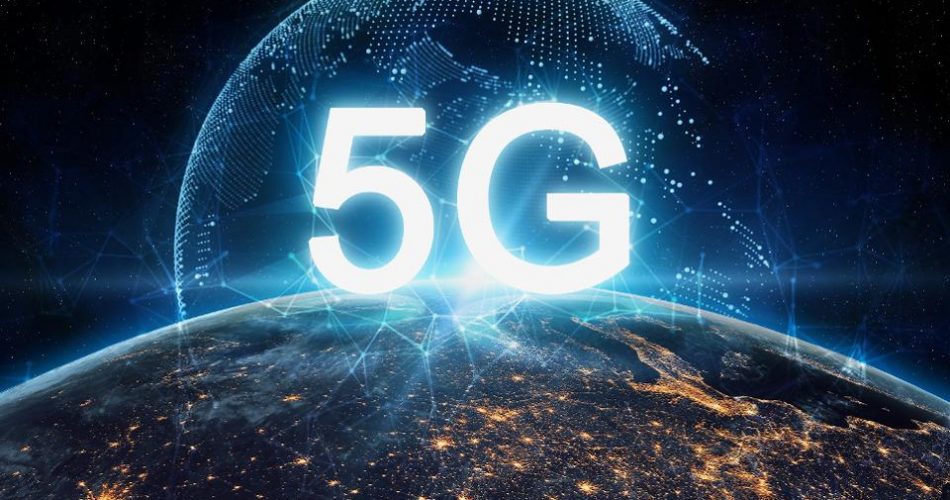Finally, 5G all set to arrive in India - Check out all the details
Spectrum auction in July

Finally, the delayed 5G spectrum auction in India is all set to happen.
The Union Cabinet chaired by the Prime Minister Narendra Modi has approved a proposal of the Department of Telecommunications to conduct an auction through which spectrum will be assigned to successful bidders for providing 5G services to public and enterprises.
A total of 72097.85 MHz of spectrum with a validity period of 20 years will be put to auction that will be by the end of July, 2022. The auction will be held for spectrum in various Low (600 MHz, 700 MHz, 800 MHz, 900 MHz, 1800 MHz, 2100 MHz, 2300 MHz), Mid (3300 MHz) and High (26 GHz) frequency bands.
It is expected that the Mid and High band spectrum will be utilised by telecom service providers to rollout 5G technology-based services capable of providing speed and capacities which are claimed to be 10 times higher than what is possible through the current 4G services.
The Cabinet also decided to enable the development and setting up of 'Private Captive Networks' to spur a wave of innovation in new-age industry applications such as machine to machine communications, Internet of Things (IoT), Artificial Intelligence (AI) across automotive, healthcare, agriculture, energy, and other sectors.
Telecom companies to benefit due to reforms
Spectrum is an integral and necessary part of the entire 5G eco-system. The government has already set up 5G test-bed in 8 top technology institutes of India for speeding up the launch of domestic 5G technology in India.
The 'Indigenous 5G Testbed' project is a long term effort with a team of 50+ researchers/engineers based out of IIT-M campus. The Department of Telecommunications (DoT) is funding the large scale 5G project with the aim of building a test bed that closely resembles a real-world 5G deployment. This testbed is basis for many commercial deployments.
Get daily insight, inspiration and deals in your inbox
Sign up for breaking news, reviews, opinion, top tech deals, and more.
The spectrum auction, the government said, will ride on the benefits of the telecom sector reforms that were announced in September 2021. The reforms include zero Spectrum Usage Charges (SUC) on the spectrum acquired in the upcoming auction. This is expected to provide a significant relief to the service providers in terms of the operating cost of telecom networks. Further, the requirement of submitting a financial bank guarantee equivalent to one annual instalment has also been done away with.
Also, for the first time ever, there is no mandatory requirement to make upfront payment by the successful bidders. Payments for spectrum can be made in 20 equal annual instalments to be paid in advance at the beginning of each year. This is expected to significantly ease cash flow requirements and lower the cost of doing business in this sector. The bidders would be given an option to surrender the spectrum after 10 years with no future liabilities with respect to balance instalments.
It may be recalled many telecom operators were pushed towards bankruptcy after India's controversial 2G spectrum auction under the previous UPA government.
The availability of sufficient backhaul spectrum is also necessary to enable the roll-out of 5G services. To meet the backhaul demand, the Cabinet has decided to provisionally allot 2 carriers of 250 MHz each in E-band to the Telecom Service Providers. The Cabinet also decided to double the number of traditional Microwave backhaul carriers in the existing frequency bands of 13, 15, 18 and 21 GHz bands.
5G and its benefits

The PLI (Production-Linked Incentives) schemes for mobile handsets, telecom equipment and the launch of the India Semiconductor Mission is expected to help build a strong ecosystem for the launch of 5G services in India.
Telecom regulator Telecom Regulatory Authority of India (TRAI), in April, had recommended about a 39% reduction in the reserve or floor price for the sale of 5G spectrum for mobile services.
All eyes will be on telecom service providers Vodafone Idea, Bharti Airtel and Reliance Industries' Jio Infocomm that will dominate the proceedings.
5G will provide higher speed, lower latency and greater capacity than 4G LTE networks. It is one of the fastest, most robust technologies the world has ever seen. 5G means quicker downloads, much lower lag and a significant impact on how we live, work and play. The upcoming 5G services have the potential to create new age businesses, generate additional revenue for enterprises and provide employment, too.
The DoT has also revealed that the 5G services will be made available in 13 Indian cities in the beginning. It will then be rolled out in remaining cities. The cities that could be getting 5G services in 2022 include the top four metropolitan locations of Delhi, Mumbai, Kolkata and Chennai. In addition, the country's software capital Bangalore and upcoming tech city Hyderabad are also on the list. The others include Jamnagar, Gandhinagar and Ahmedabad, Lucknow, Pune, Chandigarh and Gurugram. Airtel, Vodafone Idea and Jio had set up 5G trials sites in all these thirteen cities.

Over three decades as a journalist covering current affairs, politics, sports and now technology. Former Editor of News Today, writer of humour columns across publications and a hardcore cricket and cinema enthusiast. He writes about technology trends and suggest movies and shows to watch on OTT platforms.